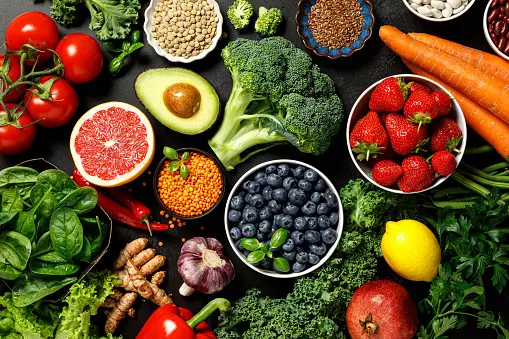Receiving radiation and chemotherapy treatments can be a challenging journey for cancer patients. Alongside medical interventions, paying attention to nutrition plays a crucial role in supporting your overall health and well-being during this time. A well-balanced diet can help minimize side effects, boost your immune system, and provide the energy your body needs to heal and recover. In this blog post, we will explore some important nutrition tips specifically tailored for cancer patients undergoing radiation and chemotherapy.
1. Prioritize a Balanced Diet:
During radiation and chemotherapy, it’s essential to focus on consuming a balanced diet that includes a variety of nutrients. Incorporate the following elements into your meals:
– Fresh Fruits and Vegetables: These are rich in vitamins, minerals, and antioxidants that support your immune system. Aim for a colorful plate, including berries, leafy greens, citrus fruits, and cruciferous vegetables like broccoli and cauliflower.
– Lean Proteins: Opt for lean sources of protein such as poultry, fish, eggs, legumes, and tofu. Protein is vital for tissue repair and maintaining strength.
– Whole Grains: Choose whole grain options like brown rice, quinoa, whole wheat bread, and oats. These provide fiber, vitamins, and minerals, while also regulating blood sugar levels.
– Healthy Fats: Incorporate sources of healthy fats like avocados, nuts, seeds, and olive oil. They provide energy and assist in the absorption of fat-soluble vitamins.
2. Stay Hydrated:
Proper hydration is especially important during radiation and chemotherapy. Drinking enough water helps flush out toxins, supports digestion, and prevents dehydration. Aim for at least eight cups of fluids per day, and consider sipping on herbal teas, broths, and smoothies to increase your fluid intake.
3. Eat Frequent, Small Meals:
Chemotherapy and radiation treatments can sometimes cause nausea or loss of appetite. To combat these challenges, try eating smaller, more frequent meals throughout the day. This approach can make it easier to consume enough calories and nutrients. Additionally, consider eating your meals in a relaxed environment and taking your time to savor the flavors.
4. Manage Digestive Issues:
Both radiation and chemotherapy can affect the digestive system, leading to issues like nausea, diarrhea, or constipation. To manage these symptoms:
– Opt for light, easily digestible meals like steamed vegetables, soups, or smoothies.
– Avoid spicy, greasy, or overly processed foods that may aggravate digestive problems.
– Ginger, peppermint, and chamomile tea can help alleviate nausea.
– Discuss with your healthcare team about the possibility of supplements or medications to aid digestion.
5. Seek Guidance from a Registered Dietitian:
Every cancer patient’s nutritional needs are unique, so it’s essential to consult with a registered dietitian who specializes in oncology nutrition. They can create an individualized meal plan based on your specific treatment, side effects, and dietary preferences. They will also consider any pre-existing health conditions and medications you may be taking.
While undergoing radiation and chemotherapy treatments, nourishing your body with a balanced diet is an integral part of your overall care. Prioritize a diet rich in fruits, vegetables, lean proteins, whole grains, and healthy fats. Stay hydrated, manage digestive issues, and seek guidance from a registered dietitian to address your specific needs. Remember, proper nutrition can provide the strength and support your body needs as you navigate through this challenging time.
**Disclaimer: This blog post is for informational purposes only and should not replace medical advice. Consult with your healthcare team or a registered dietitian for personalized recommendations based on your specific situation.





